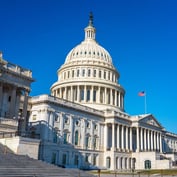Under normal circumstances, taxpayers who are eligible for the Affordable Care Act premium tax credit have two options: (1) They can receive the tax credit when they file their federal income tax for the year, or (2) they can receive the payment in advance, paid directly to the insurer, based on anticipated household income for the year in question.
Unsurprisingly, most Americans choose option two. When household income turns out to be higher than expected, taxpayers are typically required to repay the amount of any excess premium tax credits.
However, for 2020, the American Rescue Plan Act (ARPA) suspended the requirement that taxpayers repay any excess advance premium tax credits for the 2020 tax year. The IRS has announced that it will simply reduce the excess amount to zero and reimburse taxpayers who have already repaid any excess advance premium tax credit on their 2020 tax return.
We asked two professors and authors of ALM’s Tax Facts with opposing political viewpoints to share their opinions about suspending repayment obligations for excess premium tax credits for 2020.
Below is a summary of the debate that ensued between the two professors.
Their Votes:

Bloink

Byrnes
Their Reasons:
Bloink: Taxpayers have been struggling through an unanticipated economic climate in the past year. We have enough to worry about without requiring taxpayers to recalculate and repay amounts that they were given to purchase health insurance during that time. The ARPA expanded the availability of the premium tax credit greatly, but that came too late for taxpayers who purchased exchange coverage in 2020. This essentially applies the relief retroactively to offer assistance during the peak of the pandemic.
Byrnes: By suspending the requirement that taxpayers repay advance premium tax credits, we’re rewarding a group of taxpayers who have actually ended up earning more than anticipated during the pandemic. Excess advance premium tax credits have to be repaid only when a taxpayer earned too much to qualify for the amount they took throughout the year. This “free gift” makes very little sense when you think about it logically — because we’re technically rewarding a group of taxpayers who have demonstrated an ability to pay for health insurance under the terms of the ACA itself.








 April 19, 2021 at 04:08 PM
April 19, 2021 at 04:08 PM











